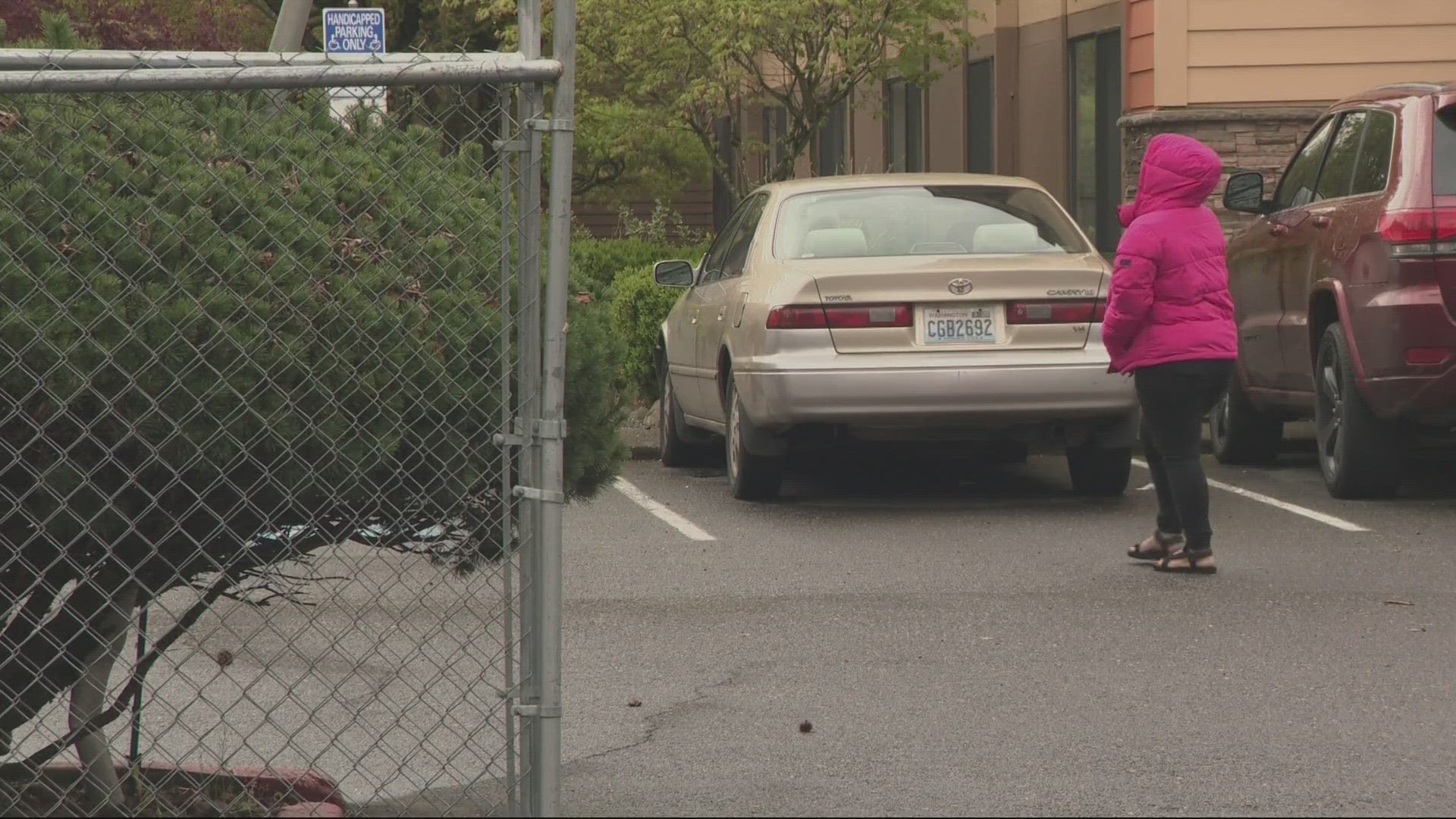PORTLAND, Ore. — It's been a long five months for 26-year-old Jennifer Rengel and her three children. She left Venezuela and has been staying at a Northeast Portland hotel for 15 days, after hearing there were fewer asylum seekers in Portland.
“It's hard because I don't want it to happen in other states — like Denver, Chicago, that's full of people sleeping on the streets. That's why we made the decision to come to Portland because we hadn't heard it was as full,” Rengel said in Spanish.
When she got to Portland, she learned the nonprofit supporting her was running out of money for her hotel room.
“It's hard because we all had to be out tomorrow,” she said Thursday.
Earlier this week — and as first reported by KGW — Multnomah County initially offered them 24 four-person tents.
It was not what Rengel expected.
“Honestly, we don't want to be sleeping in tents with the kids, because it's already been five months of traveling to be able to get to the United States, sleeping on the street, sleeping wherever we had to sleep — like a terminal or a jungle — everything that we've been through,” she said.
On Wednesday night, Multnomah County chair Jessica Vega Pederson’s office announced they would pay to keep them housed through the end of the month. That announcement came just two days before their housing was set to run out. Portland city Commissioner Rene Gonzalez’s office previously paid for a week of hotel rooms.
“We have to be way out more in front of this as a community. This shouldn't be coming down to the day before people get thrown out of hotels; we need to be planning for this stuff longer term,” Gonzalez said Thursday.
Portland city Commissioner Carmen Rubio is also stepping in to find a long-term solution for these families.
“It’s simply unacceptable that these families have been forced to navigate this on their own, and I want to thank the community organizations who have stepped in to fill this void," she said in a statement.
"My office just met with the Interfaith Movement for Immigrant Justice, and we are working diligently with them to identify immediate support for these families. I’m relieved to know that the County is actively working on an extension. In the meantime, I have directed the Portland Housing Bureau to look at any local and federal resources that could apply here, including my own office budget.”
The county chair was unavailable for an interview on Thursday. A spokesperson for her office told KGW in an email that the chair is “tapping her office budget to cover the next 30 days giving city, state, federal partners, faith communities and philanthropies time to work on longer-term solutions.” She expects to pay up to $50,000.
“These challenges are much larger than any one local government can solve alone,” said Chair Vega Pederson in a statement. “We can do our part to extend this safety net for a month while the many stakeholders can come together to determine the best next steps. We know new families are arriving every day.”
This results in mothers like Rengel having some stability — at least for right now.
“They tell us that we have until the end of the month, and what's going to happen to us after that? That's what we want to know. What's going to happen to us?” she said.
The county expects meetings with stakeholders to find solutions to begin next week.
On Thursday, KGW heard from the governor’s office for the first time about this. They told KGW that last year, the governor directed the Oregon Department of Human Services (ODHS) and community-based organizations to work together to determine an ongoing plan for how communities can serve asylum seekers — the outcome of which was House Bill 4159 in the 2024 session.
That bill did not pass the legislature, but lawmakers did allocate $2 million for a pilot program. The governor expects the ODHS Office of Immigrant and Refugee Advancement to explore options to strengthen the state’s response by working with county and community partners.

